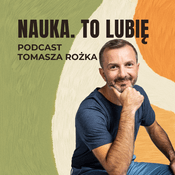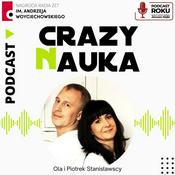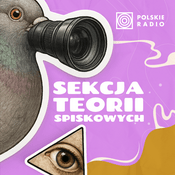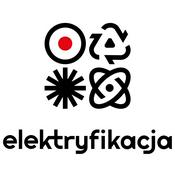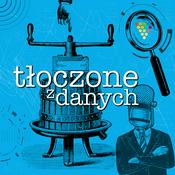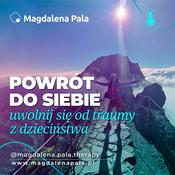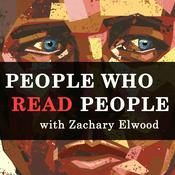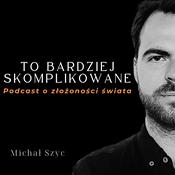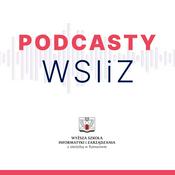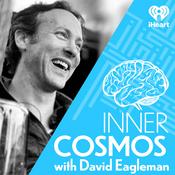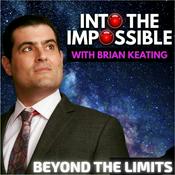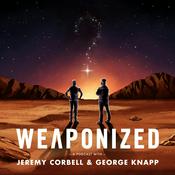612 odcinków
- Over the past several decades, many technologists and policy makers have sought out huge, disruptive shifts in thinking in almost every area of science, business and commerce in the hope that they’d help to drive innovation forward in giant leaps, one brilliant new idea at a time. But how successful has this been, and should we instead be focusing on a more gradual, incremental approach to innovation that’s based on the steady upgrading of the systems we already have in place?
In this episode, we’re joined by Albert Fox-Cahn, a visiting professor at The Centre of Governance and Human Rights at Pembroke College, Cambridge, to talk about his latest book Move Slow and Upgrade – The Power of Incremental Innovation.
He tells us why we tend to overemphasise the potential impact of the Next Big Thing, how this often leads to a rush to adopt unproven, and at times, unsafe new technologies, and how applying evidence-based thinking and an upgrader’s mindset can help us to be more like the tortoise than the hare, and ultimately win the race.
Learn more about your ad choices. Visit podcastchoices.com/adchoices - If most of us are put on the spot and asked to name acts that we think would define a person as evil, it’s likely our minds would turn to murderers, rapists and war criminals, to name a few. But could it be that this commonly held conception of evil isn’t merely just an oversimplification, but rather a deeply flawed way of viewing the world based on a litany of personal biases, and one that is in dire need of readdressing?
In this episode, we’re joined by Dr Julia Shaw, a broadcaster, best-selling author and psychologist based at University College London to talk about the nature of evil.
She tells us why it’s vital that we accept that, given a certain set of circumstances, we’re all capable of committing terrible acts, explains the key differences between thought and action, and explains why so many of us are fascinated by true crime documentaries and dramas.
Learn more about your ad choices. Visit podcastchoices.com/adchoices - From famous actors and pop stars to the legions of social media influencers with millions of views, it seems almost everyone has something to say about the best ways to boost our health and wellbeing. But is this trend leading to many of us bypassing traditional sources of health advice and care such as GP practices and government health services and instead turning to the Internet, social media and private online pharmacies to seek out information, diagnoses, and, in some cases, even prescription medicines?
In this episode, we’re joined by Deborah Cohen, an award-winning medical broadcaster and author to talk about her latest book, Bad Influence – How the Internet Hijacked Our Health.
She tells us how the COVID 19 pandemic kickstarted a worldwide boom in consumer healthcare that shows no sign of stopping, why celebrities and social media stars hold so much influence over important decisions that can hugely impact our lives, and points out some of the red flags we can look out for when searching for health advice online.
Learn more about your ad choices. Visit podcastchoices.com/adchoices - While the human mind is capable of great insight, original thoughts and acts of tender kindness towards others, it can also, at times, act like our own worst enemy. Feelings of worthlessness, shame and disappointment can all stem from our brain’s natural inclination for overthinking.
This can give rise to a wide range of debilitating impacts on our lives, such as low self-esteem, anxiety and depression and can even lead to the development of significant physical health issues. So, why do our minds seem to sabotage us in this way and what measures can we take to free ourselves from the common traps that lead us to being stuck in endless loops of negative thinking?
In this episode, we’re joined by Dr Jessamy Hibberd, a clinical psychologist and best-selling author, to talk about her latest book, The Overthinking Cure – How to Free Your Mind and Focus on What Really Matters.
She tells us how common habits such as self-criticism, comparing ourselves to others, and actively avoiding our problems can all lead us to overthink, why we are all vulnerable to getting stuck in spirals of negative thoughts, and how learning to manage where we place our attention is often the first step we can all take to help us to boost our moods and wellbeing.
Learn more about your ad choices. Visit podcastchoices.com/adchoices - From the terrifying, hulking beasts portrayed in blockbuster movies to the friendly, charismatic characters often found in children’s cartoons, dinosaurs have made their way into almost every corner of popular culture. However, in terms of scientific accuracy, such depictions tend to leave a lot to be desired. So, how do we know what dinosaurs really looked like, whose job is it to show us, and how exactly do they go about it?
In this episode, we’re joined by Dr Mark Witton, a researcher, author and highly regarded paleoartist based at the University of Portsmouth.
He outlines the detailed scientific process paleoartists follow to bring these ancient beasts to life as realistically as possible, runs us through some of the common mistakes Hollywood directors make in the name of artistic licence, and explains why the T.Rex is one of his favourite dinosaurs to draw.
To see Mark’s work, check out his website www.markwitton.co.uk
Learn more about your ad choices. Visit podcastchoices.com/adchoices
Więcej Nauka podcastów
Trendy w podcaście Nauka
O Instant Genius
Whether you’re curious about getting healthy, the Big Bang or the science of cooking, find out everything you need to know with Instant Genius. The team behind BBC Science Focus Magazine talk to world-leading experts to bring you a bite-sized masterclass on a new subject each week.
New episodes are released every Monday and Friday and you can subscribe to Instant Genius on Apple Podcasts to access all new episodes ad-free and all old episodes of Instant Genius Extra.
Watch full episodes of Instant Genius on BBC Science Focus Magazine's YouTube channel.
Strona internetowa podcastuSłuchaj Instant Genius, Ologies with Alie Ward i wielu innych podcastów z całego świata dzięki aplikacji radio.pl
Uzyskaj bezpłatną aplikację radio.pl
- Stacje i podcasty do zakładek
- Strumieniuj przez Wi-Fi lub Bluetooth
- Obsługuje Carplay & Android Auto
- Jeszcze więcej funkcjonalności
Uzyskaj bezpłatną aplikację radio.pl
- Stacje i podcasty do zakładek
- Strumieniuj przez Wi-Fi lub Bluetooth
- Obsługuje Carplay & Android Auto
- Jeszcze więcej funkcjonalności

Instant Genius
Zeskanuj kod,
pobierz aplikację,
zacznij słuchać.
pobierz aplikację,
zacznij słuchać.



